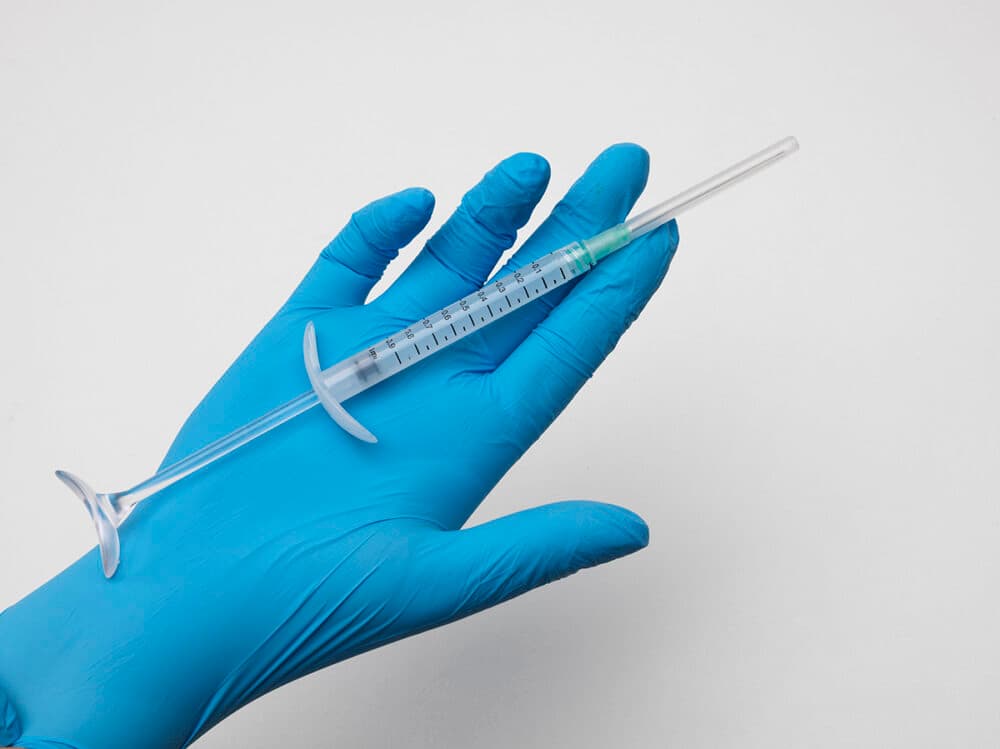Contura Orthopaedics latest research highlights
Published data further confirms the lasting benefits of hydrogel injections
Contura Orthopaedics latest research highlights as published data further confirms the lasting benefits of hydrogel injections The robust, peer-reviewed paper plays a significant part in Arthrosamid®’s growing research portfolio – shining a light on the seminal study which formed the foundations of many subsequent investigations

Recent research published in the Journal of Orthopaedic Surgery and Research has once again reinforced to the international medical community the persistent benefits and safety of polyacrylamide hydrogel (iPAAG), 52 weeks after a single injection.1
Whilst the long-lasting 2,3 effects of the hydrogel treatment, Arthrosamid® have been understood this is the first time that these results (from the prospective open-label study “IDA”) have been published in a peer-reviewed journal. This publication brings further reassurance and supporting evidence to those currently considering the minimally invasive, hydrogel treatment as an alternative to surgery.
The study “Effectiveness and Safety of Polyacrylamide Hydrogel Injection for Knee Osteoarthritis: Results from a 12-Month Follow Up of an Open-Label Study1 comprised 49 participants, with an average age of 70 and reviewed outcomes at 13, 26 and 52 weeks, post-Arthrosamid® injection.
The published findings showed for the first time that a single treatment with 6ml iPAAG remains effective after one year with good clinical effects and no significant adverse events.1
It’s also important to note that this trial, together with extensive safety and performance data over two decades, led to Arthrosamid’s European regulatory CE approval for the symptomatic treatment of patients with knee OA in 2021.
As explained here by Rakesh Tailor, CEO of Contura Orthopaedics Ltd (the polyacrylamide hydrogel technology specialists which pioneered the Arthrosamid® treatment), whilst this published paper is hugely important in terms of cementing Contura’s research portfolio, this study very much represents the “start of the story” and the original platform for a growing body of subsequent research.
Rakesh says; “We’re absolutely thrilled to see one of our key research projects – led by internationally acclaimed rheumatologist Professor Henning Bliddal – recognised in this way with well-deserved publication in a reputable and credible journal, having been through a rigorous peer-review process which really reinforces the significance of this study.”
“Our team has always been hugely committed to demonstrating the long-term effectiveness and safety profile of Arthrosamid® and the meaningful and lasting difference our innovative hydrogel technology can make to patients’ lives. So, to see the publication of this original research project - underpinned with positive patient outcomes – is an important milestone”
“Whilst this study has only recently been published, there has been much excitement around its key findings for some time. In fact, once the early data was first shared, it quickly led to further ‘extension studies.’
“Just last year, we presented new findings at the Orthopaedic Research Society International (OARSI) World Congress, in Denver (Colorado, USA) which found that a single 6ml injection of Arthrosamid® maintained a statistically significant reduction in pain in patients with knee osteoarthritis (OA) 3 years after treatment2”
“At the time, we knew this would add to the body of available evidence to position Arthrosamid® as a real game changer and would help decision makers in the NHS to see the value in increasing the accessibility of this treatment option.”
“But, we didn’t stop there – and as such, we’re also delighted to share that another of our clinical data abstracts, has just been featured in a summer issue of the OARSI Journal ‘Osteoarthritis and Cartilage’ “3 year follow-up from a randomised controlled trial of intra-articular polyacrylamide hydrogel injection in subjects with knee osteoarthritis 3’ evaluating the long-term effectiveness of Arthrosamid®, 3 years post-treatment in participants from the ROSA randomized controlled trial”.

This study comprised 119 patients, with the aim of investigating the long-term efficacy and safety of a single injection of 6ml intra-articular polyacrylamide hydrogel (iPAAG, Arthrosamid®) on knee symptoms in participants with moderate to severe knee osteoarthritis (OA) for up to 5 years after treatment - and to evaluate the time to start other treatments for knee OA.
75 patients continued onto the 3-year phase of the project. This additional study has shown again that single injections of 6 ml intra-articular iPAAG are well tolerated and continue to provide clinically relevant and statistically significant effectiveness at 3 years after treatment3
CEO Rakesh Tailor concludes; “Some months ago the milestone of more than 10,000 patients across Europe having been treated with Arthrosamid® was achieved – and, this summer, we can also acknowledge and celebrate our significant research milestones which continue to pave the way for an exciting new phase for Arthrosamid® as its benefits are accepted by an even wider audience and research community.”
“Peer-reviewed, published clinical research means we can continue to ‘shake up’ the conversation around effective treatments for people living with the debilitating pain caused by knee osteoarthritis.”
References:
1 .Bliddal, H., Beier, J., Hartkopp, A. et al. Effectiveness and safety of polyacrylamide hydrogel injection for knee osteoarthritis: results from a 12-month follow up of an open-label study. J Orthop Surg Res 19, 274 (2024).
2. Bliddal, H., et al. (2023) A Prospective Study of Polyacrylamide Hydrogel Injection for Knee Osteoarthritis: Results From 3 Years After Treatment. Osteoarthritis and Cartilage. Vol 31(5): 682-683.
3. Bliddal, H., et al. (2024) 3 year follow-up from a randomized controlled trial of intra-articular polyacrylamide hydrogel injection in subjects with knee osteoarthritis. Osteoarthritis and Cartilage 32 (2024) 745–836. https://doi.org/10.1016/j.joca.2024.03.033
